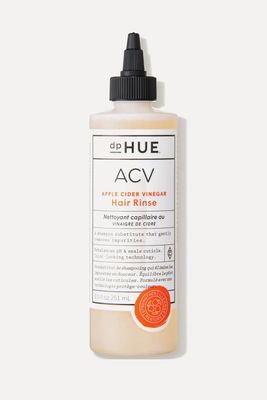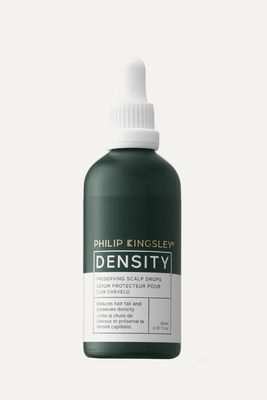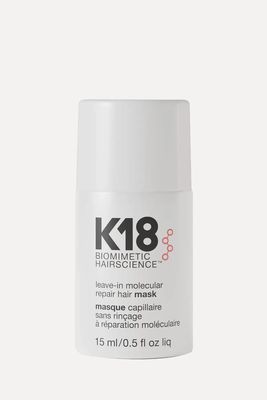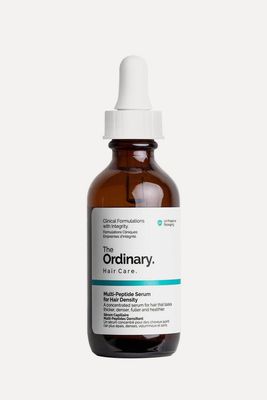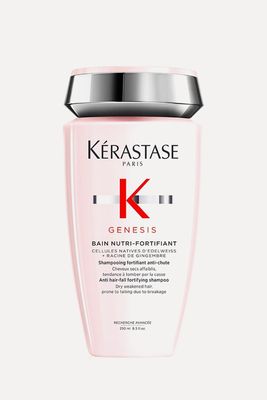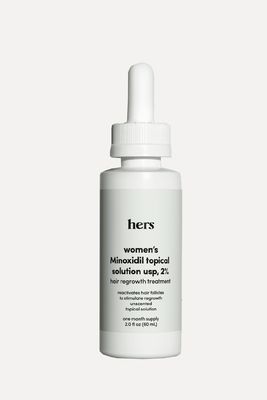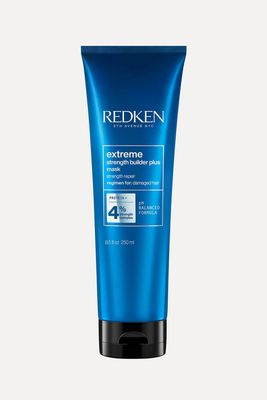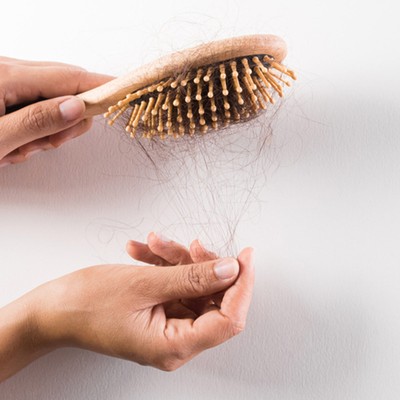
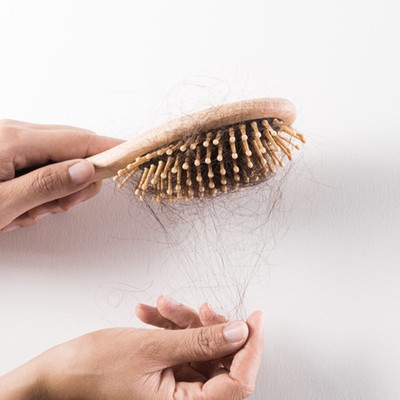
Hair Loss And Everything You Need To Know
All products on this page have been selected by our editorial team, however we may make commission on some products.
Let’s Start With The Obvious – Why Does The Menopause Cause Hair Loss?
“It’s no wonder this is a top question from the SL Community – because up to 40% of us will suffer some hair loss post menopause. This is due to the hormonal shifts that occur leading up to, during and post menopause. Oestrogen is hair-friendly and helps to keep strands in their growth phase. It also offers protection against the detrimental effects that androgens – male hormones – can have on the hair follicle. When our oestrogen levels naturally decline through the menopause, our hair begins to shed, often excessively. On top of this, the growth slows, resulting in finer, shorter hairs. The extent of the loss and changes you’ll see is largely down to genes and how sensitives your follicles are to androgens. If you have high sensitivity, you’re likely to experience a greater degree of thinning than a friend with little or no sensitivity.”
How Can You Tell If The Loss Is Significant Or Light Shedding?
“A normal amount of hair loss is what I would refer to as your usual rate of daily shedding. Everyone – on average – sheds around 100 hairs per day; however, if you see a fluctuation where you are shedding too much or more hair than what you consider your own normal, then this indicates an imbalance. We call this type of hair shedding ‘telogen effluvium’. There are two different variations here – one is ‘acute’ and means your hair shedding is short-term and usually only for six months, whereas ‘chronic telogen effluvium’ is when the shedding lasts for a longer period. Typically, the hair that is shed will be replaced and grow back – even if it is finer and less dense.”
You Mention It Can Grow Back, But What Do You Advise If The Loss Is Worsening?
“You want to be optimising each possible factor that can affect your hair growth cycle – that includes your health, nutrition and thyroid function, stress levels and your scalp health, too. It’s also important you pay attention to the overall condition of your hair. Eating a healthy, balanced and varied diet is key. The impact that nutrition has on hair growth should not be underestimated. As hair is a non-essential tissue – and hair cells are the second fastest growing cells your body makes – its nutritional requirements are high. In fact, even a small deficiency can cause hair loss. It is, however, hard to give your hair what it needs through diet alone. With that in mind, accompany a healthy diet with supplements that include protein. Hardly anyone eats enough protein and it’s a key ingredient from a hair growth standpoint. Last but not least, stress management is essential. If you are still concerned, get in touch with a trichologist who can give you tailored advice.”
Diet & Nutrition Aside, Can You Take A Preventative Approach To Post-Menopausal Hair Loss?
“Scalp health has a profound influence on the growth of your hair. It’s important to target your scalp weekly with masks and toners – our Density Scalp Toner is ideal as it unclogs blocked follicles to promote better growth. I also believe you should shampoo at least every other day to keep your scalp ‘cleansed.’ Remember, our scalp is a living tissue and acts as your hair’s support system. Frequent shampooing will keep your scalp clean and healthy and, in turn, promote better growth. You take your hair and scalp to the same places that you take your face – they get just as dirty by the end of the day. Think of each hair as a flower and your scalp as the soil supporting it. When you look at it that way, it makes total sense to nourish and care for it as much as you can.”
What About Platelet-Rich Plasma Injections? Do You Recommend Them?
“PRP treatments are injections into the scalp to boost blood flow and hair growth. Some people do see good results but bear in mind this can really vary. Of course, there is no harm in trying it, but treatments like this can be expensive and you will need a course to see results. They work best when used alongside other treatments, such as daily application of scalp drops and toners, as well as good supplements and a healthy diet.”
Similarly, Where Do You Stand On HRT For Preventing Post-Menopausal Hair Loss?
“Hormone Replacement Therapy restores your body’s oestrogen to an average pre-menopausal level. This treatment relieves menopausal symptoms, including hot flushes, mood swings, osteoporosis and decreased libido. It’s also known to help with hair thinning. If you do go ahead with HRT, it’s important you make your doctor aware before your treatment that you’re concerned about hair loss. This may influence which therapy they deem best for you. Certain HRT therapies are hair-friendly, while others are not – some may even exacerbate thinning, so it’s key you initiate a conversation. Our trichologists at Philip Kingsley can work with your doctors to ensure you get the best all-round HRT treatment.”
Back To Topical Treatments – What Do You Recommend In Terms Of Ingredients Within Haircare?
“I’ve mentioned it already, but targeted scalp treatments will have a profound influence on your hair’s density and health. Similarly, the use of a weekly pre-shampoo conditioning treatment will restore strength and elasticity to your strands. While shampoos and conditioners won’t treat hair loss – don’t waste money on those that claim to – a well-formulated volumising duo can beef up the appearance of fine, limp and lacklustre hair. I recommend using topical scalp drops containing Minoxidil, anti-androgens and hormones – these are proven to help stimulate growth and minimise loss. Nioxin is worth trying too, but it does depend on what is causing or contributing to your hair loss, so it’s important to start with that. Finally, a good multi-vitamin and mineral supplement is essential to give your hair the nutrients it needs to grow.”
If You Want To Seek Out Expert Advice, Where Do You Begin?
“There are many types of hair loss and it is important you identify the root cause in order to proceed with the correct treatment method. For instance, if your hair loss is not due to a nutritional deficiency, then a nutritional supplement won’t be as effective. Seek out trichological clinics – at ours, we undertake a holistic 360-degree consultation. Within that, we look at our client’s health, medical history, genetic history, lifestyle, diet, hair and scalp condition. We will then send them for blood tests to identify any possible causes. It’s important that whoever you see does a deep dive. Once you get a full picture, you have a better chance of creating an effective treatment plan.”
Finally, Can You Ever Reverse Post-Menopausal Hair Loss? Can You Give A Glimmer Of Hope?
“Let’s start with the bad – you can’t ‘reverse’ female pattern thinning, but you can work on improving your hair density with expert advice and a healthy hair routine. There are so many factors at play, which is why a thorough consultation is important. The good news is you can absolutely optimise hair growth and quality by working on your diet and looking after your general health. Keeping your hair’s condition strong with weekly treatments will also have a positive impact. I really recommend topical scalp drops – they are almost like a scalp specific HRT, without being absorbed systemically.”
Visit PhilipKingsley.co.uk to book in with Anabel Kingsley or another consultant trichologist. Follow @Anabel_Kingsley for more advice & tips.
Shop Our Hair Strengthening Edit
DISCLAIMER: We endeavour to always credit the correct original source of every image we use. If you think a credit may be incorrect, please contact us at info@sheerluxe.com.
